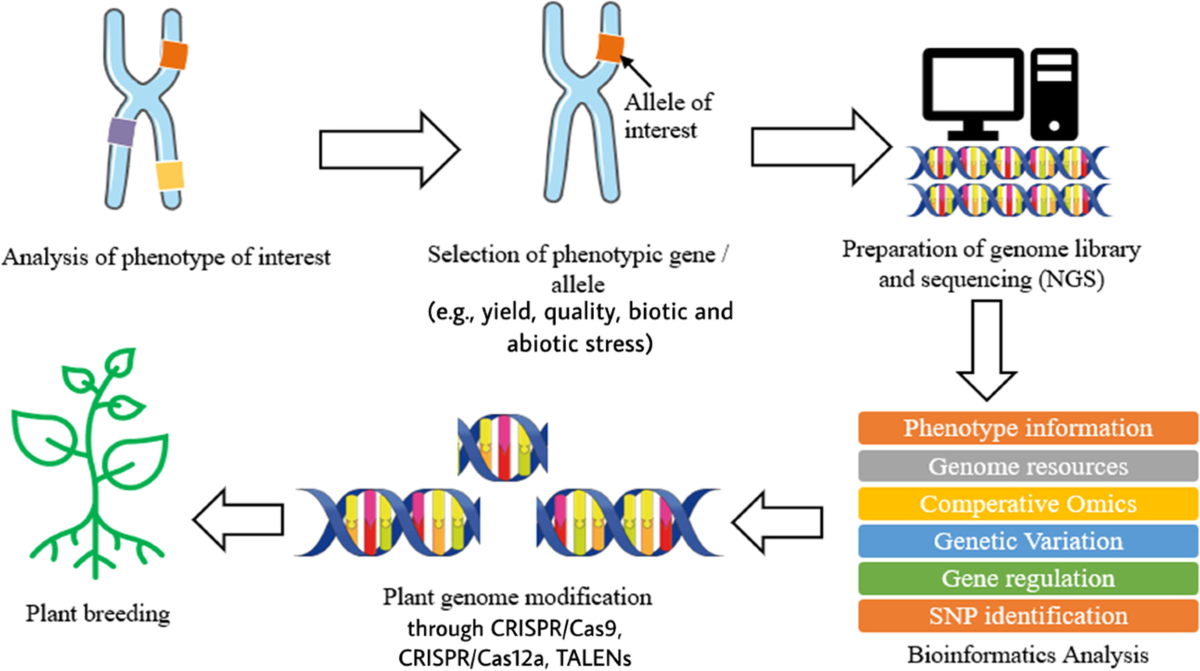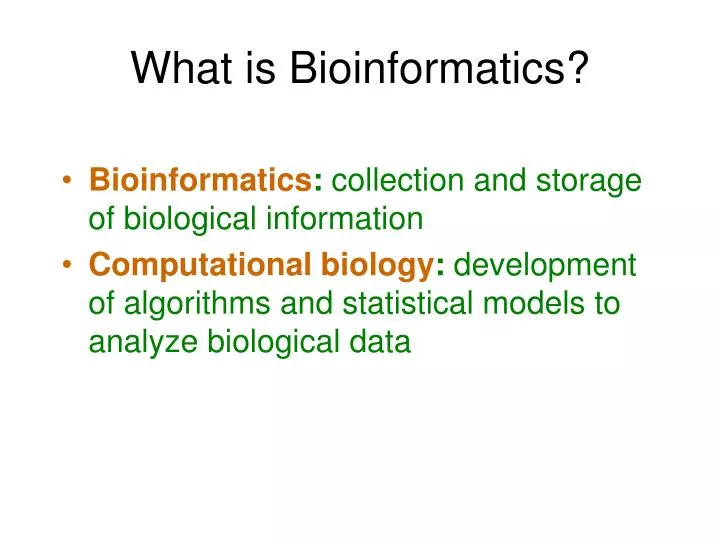Our Bioinformatics Tutor PDFs
Our Bioinformatics Tutor PDFs
Blog Article
Bioinformatics Tutor Things To Know Before You Buy
Table of ContentsSome Ideas on Bioinformatics Tutor You Need To KnowNot known Incorrect Statements About Bioinformatics Tutor The smart Trick of Bioinformatics Tutor That Nobody is DiscussingSome Known Factual Statements About Bioinformatics Tutor Bioinformatics Tutor for Beginners
Of the overall individuals entailed in the training, 80% were pupils from public college organizations, while the continuing to be 20% originated from personal organizations. To get a certificate of involvement, pupils were called for to attend at least 90% of the total training hours. As an outcome of this requirement, an outstanding 95% of the individuals efficiently gotten their certifications, having not just met the minimum presence requirements yet also finished all designated activities throughout the training.
Throughout the elevation of the COVID-19 pandemic, specifically between June and August 2020, the task team was charged with organizing specialized training in bioinformatics. This training was particularly targeted at pupils from the study team Center for Study in Applied Computing at the Federal University of Pará (UFRA) The adaptation to remote knowing systems as a result of the pandemic produced a possibility to explore new mentor techniques and digital devices that enhanced both reach and performance.
This program was made to supply an available yet comprehensive introduction of Artificial Intelligence strategies, especially as used in bioinformatics (Bioinformatics Tutor). This digital layout enabled participation from pupils throughout Brazil, numerous of whom may not have had the chance to attend in-person sessions.
Bioinformatics Tutor for Dummies
About 50% of the complete training hours were devoted to functional activities where pupils developed smart versions and applications in a range of scientific domain names, consisting of genetics, molecular biology, and ecological information evaluation. These systems made it possible for students to involve in real-time data adjustment, version training, and formula experimentation.
Sixty of them were affiliated with numerous higher education establishments in the state of Pará, while the staying twenty came from organizations situated in 5 other Brazilian states. By presenting Artificial Knowledge in a appropriate and useful context, the initiative offered to link the space in between concept and real-world application, providing trainees with a strong foundation for future study or employment in the field.
The training campaign developed component of a more comprehensive scholastic outreach effort referred to as the Bioinformatics when traveling project. This task has, for many years, presented dozens of trainees to the globe of bioinformatics and computational biology. The events held under this umbrella campaign have happened across numerous areas and years, as summed up in Table 1 (Listing of events, places, years, and complete numbers of pupils and instructors)
Several of these teams, originally brought with each other by their participation in training occasions, have since gone on to create independent scientific research study in partnership with local academic establishments. The training not just cultivated scientific thinking within the context of bioinformatics however additionally sparked joint partnerships that prolonged past the training setting.
Our Bioinformatics Tutor PDFs
The very same group, omitting IH and RR, also acted as tutors for the useful training components. Funding for the job was provided through the give 88887.200562/ 2018-00 from CAPES.
The Federal University of Pará's Workplace of Study (PROPESP/UFPA) additionally offered financial backing, particularly for the manufacturing of the final manuscript. Learn More The authors state no monetary or business disputes of rate of interest that might have influenced the research study. All point of views and analyses revealed in this short article are exclusively those of the authors and do not always show those of their corresponding institutions, the author, editors, or reviewers included in the publication process.

The smart Trick of Bioinformatics Tutor That Nobody is Discussing
From an instructional perspective, the teaching strategy utilized in the training was purposefully interactive. Courses were performed in a way that urged student participation and discussion, going beyond rote memorization to discover exactly how concepts are established, used in every day life, and tested in academic settings. The instructional viewpoint concentrated on supporting both solid and struggling trainees, offering personalized support, and structure self-confidence through continual mentorship and patience.

Each team, including roughly 36 individuals, was supported by 3 advisors-- a lot of whom were postdoctoral researchers with customized knowledge. These advisors not just helped develop the team tasks but also facilitated their implementation, ensuring that each study inquiry was both appropriately difficult and pertinent. The goal was to provide a naturally realistic context that participants might explore through open-ended goals and accessibility to curated datasets.
For added understandings right into the approach and outcomes of this project-based knowing strategy, visitors are guided to S1 Text, that includes thorough descriptions of the pedagogical framework, special info analysis strategies, and task themes used in the training sessions.
Fascination About Bioinformatics Tutor
Of the total amount participants involved in the training, 80% were pupils from public higher education organizations, while the remaining 20% came from private institutions. To qualify for a certification of participation, trainees were called for to go to at the very least 90% of the overall training hours. Notably, beyond the pupils that enlisted in the training sessions, 7 experienced instructors got involved in supplying the courses, while three dedicated research study teachers worked with the general training process. Approximately 50% of the total training hours were committed to useful tasks where students developed intelligent models and applications in a variety of scientific domains, including genetics, molecular biology, and ecological data analysis. The training not just promoted clinical reasoning within the context of bioinformatics however also stimulated joint connections that prolonged past the training environment.
Report this page